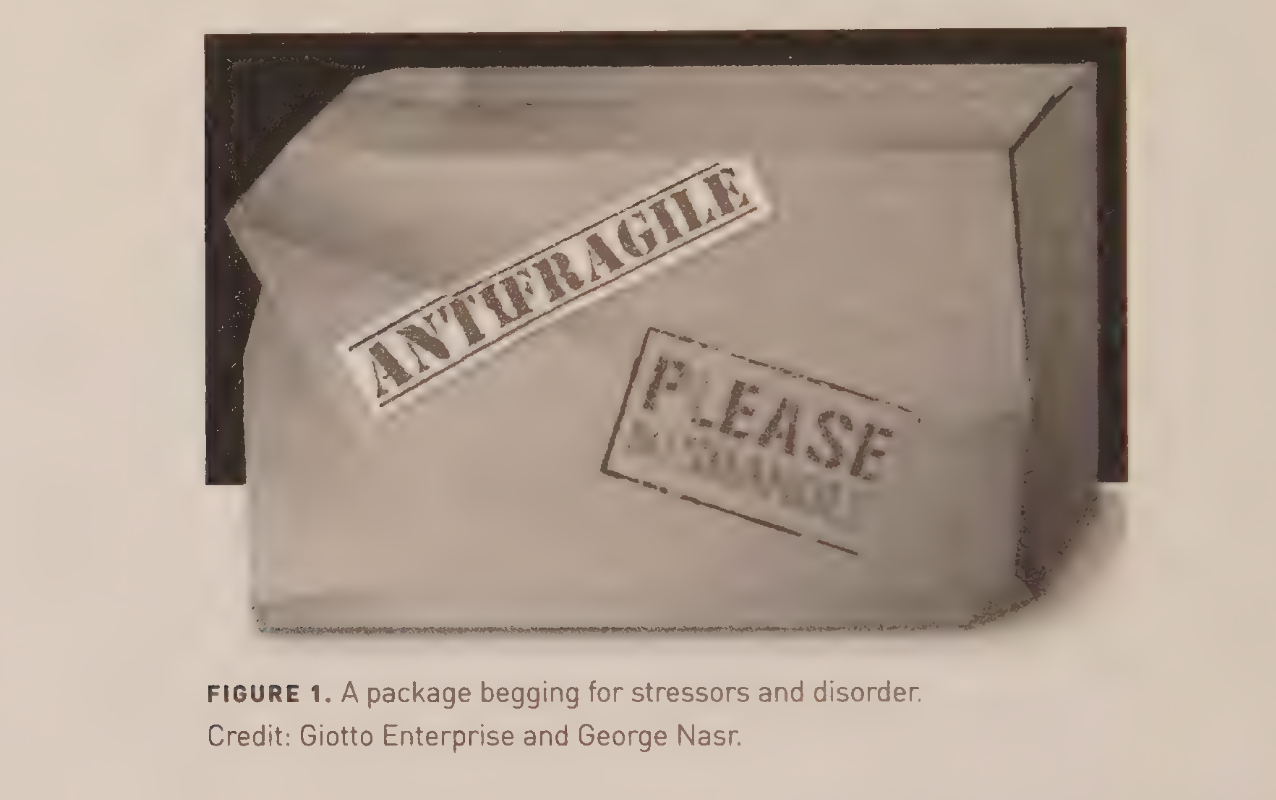Chapter 1 Between Damocles and Hydra
Please cut my head off—How by some magic, colors become colors—How to lift weight in Dubai
HALF OF LIFE HAS NO NAME
You are in the post office about to send a gift, a package full of champagne glasses, to a cousin in Central Siberia. As the package can be damaged during transportation, you would stamp “fragile,” “breakable,” or “handle with care” on it (in red). Now what is the exact opposite of such situation, the exact opposite of “fragile”?
Almost all people answer that the opposite of “fragile” is “robust,” “resilient,” “solid,” or something of the sort. But the resilient, robust (and company) are items that neither break nor improve, so you would not need to write anything on them—have you ever seen a package with “robust” in thick green letters stamped on it? Logically, the exact opposite of a “fragile” parcel would be a package on which one has written “please mishandle” or “please handle carelessly.” Its contents would not just be unbreakable, but would benefit from shocks and a wide array of trauma. The fragile is the package that would be at best unharmed, the robust would be at best and at worst unharmed. And the opposite of fragile is therefore what is at worst unharmed.
We gave the appellation “antifragile” to such a package; a neologism was necessary as there is no simple, noncompound word in the Oxford English Dictionary that expresses the point of reverse fragility. For the idea of antifragility is not part of our consciousness—but, luckily, it is part of our ancestral behavior, our biological apparatus, and a ubiquitous property of every system that has survived.

To see how alien the concept is to our minds, repeat the experiment and ask around at the next gathering, picnic, or pre-riot congregation what’s the antonym of fragile (and specify insistently that you mean the exact reverse, something that has opposite properties and payoff). The likely answers will be, aside from robust: unbreakable, solid, well-built, resilient, strong, something-proof (say, waterproof, windproof, rustproof)—unless they’ve heard of this book. Wrong—and it is not just individuals but branches of knowledge that are confused by it; this is a mistake made in every dictionary of synonyms and antonyms I’ve found.
Another way to view it: since the opposite of positive is negative, not neutral, the opposite of positive fragility should be negative fragility (hence my appellation “antifragility”), not neutral, which would just convey robustness, strength, and unbreakability. Indeed, when one writes things down mathematically, antifragility is fragility with a negative sign in front of it.( Just as concavity is convexity with a negative sign in front of it and is sometimes called anticonvexity.)
This blind spot seems universal. There is no word for “antifragility” in the main known languages, modern, ancient, colloquial, or slang. Even Russian (Soviet version) and Standard Brooklyn English don’t seem to have a designation for antifragility, conflating it with robustness.
